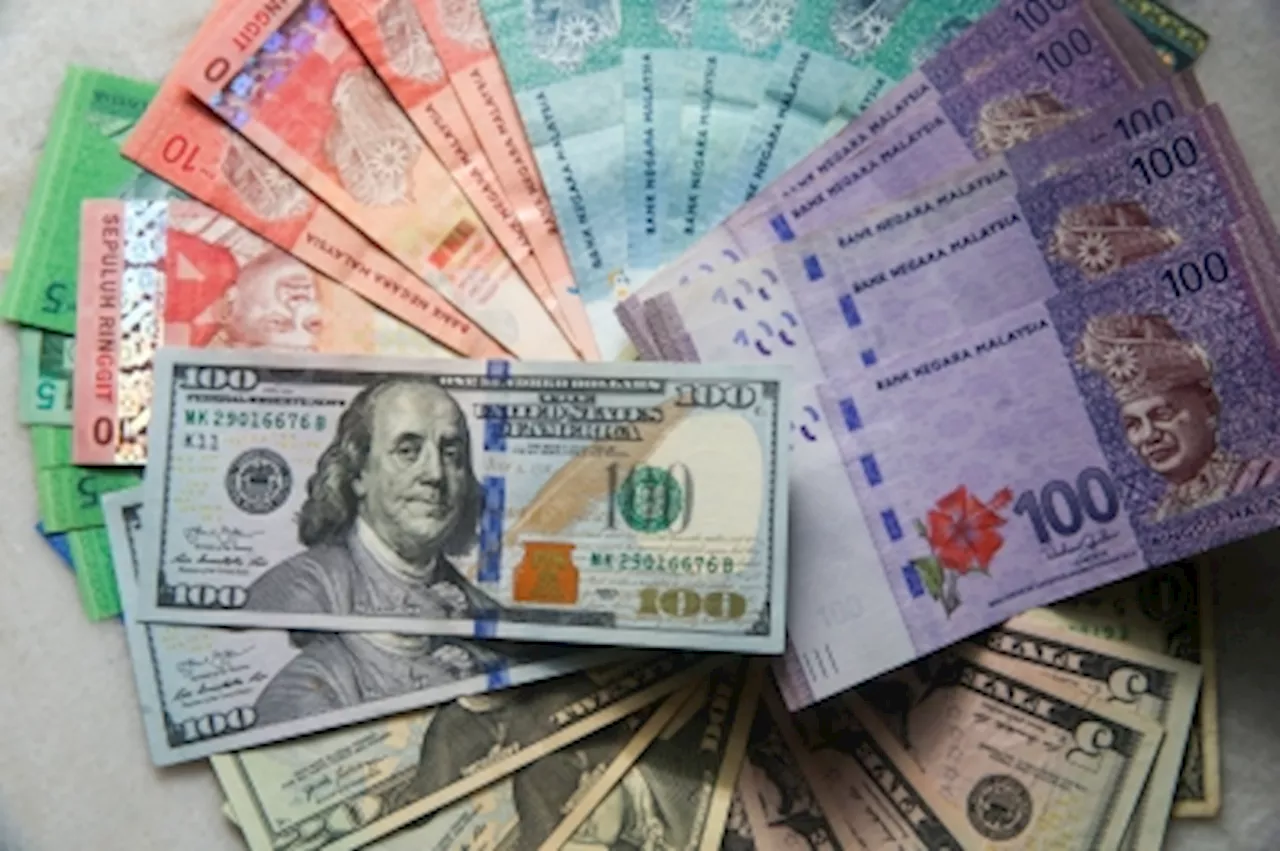SAN FRANCISCO/NEW YORK (Reuters) - OpenAI is pushing ahead on its plan to reduce its reliance on Nvidia for its chip supply by developing its first generation of in-house artificial-intelligence silicon.
KUALA LUMPUR: The ringgit closed lower against the US dollar for the third consecutive day as concerns over the impact of the United States import tariff on steel and aluminium industries supported the greenback.
Bank Muamalat Malaysia Bhd chief economist Dr Mohd Afzanizam Abdul Rashid noted that US President Donald Trump's administration will impose 25 per cent tariffs on steel and aluminium imports from all countries. Additionally, he said the stable US labour market conditions also lent strong support to the greenback.
However, December’s NFP was revised upwards, from 256,000 to 307,000, while the unemployment rate fell further to 4.0 per cent in January from 4.1 per cent in the preceding month, suggesting that the US labour market remains resilient.
Ringgit US Dollar Mohd Afzanizam Tariff Nonfarm Payrolls
Malaysia Latest News, Malaysia Headlines
Similar News:You can also read news stories similar to this one that we have collected from other news sources.
 Ringgit Opens Lower Against US DollarThe Malaysian ringgit weakened against the US dollar in early trade on Monday, tracking the greenback's strength fueled by a robust US economy and positive labor market data.
Ringgit Opens Lower Against US DollarThe Malaysian ringgit weakened against the US dollar in early trade on Monday, tracking the greenback's strength fueled by a robust US economy and positive labor market data.
Read more »
 Ringgit opens lower against US dollar in early tradeThe US labour market remains resilient, with the latest non-farm payroll data exceeding expectations.
Ringgit opens lower against US dollar in early tradeThe US labour market remains resilient, with the latest non-farm payroll data exceeding expectations.
Read more »
 Ringgit Opens Lower Against US DollarThe Malaysian ringgit started the trading week with a decline against the US dollar due to the strengthening of the greenback. This was attributed to positive economic indicators and a resilient US labor market.
Ringgit Opens Lower Against US DollarThe Malaysian ringgit started the trading week with a decline against the US dollar due to the strengthening of the greenback. This was attributed to positive economic indicators and a resilient US labor market.
Read more »
 Ringgit Soars to Three-Month High on Trump's China Tariff Easing and Lower Rate SignalsThe Malaysian ringgit reached its highest point in nearly three months against the US dollar on Friday, driven by US President Donald Trump's softened stance on China tariffs and his indication of a preference for lower US interest rates. Global markets responded positively to these developments, with major Asian currencies also experiencing gains.
Ringgit Soars to Three-Month High on Trump's China Tariff Easing and Lower Rate SignalsThe Malaysian ringgit reached its highest point in nearly three months against the US dollar on Friday, driven by US President Donald Trump's softened stance on China tariffs and his indication of a preference for lower US interest rates. Global markets responded positively to these developments, with major Asian currencies also experiencing gains.
Read more »
 Ringgit Closes Marginally Lower Amid Strong US Dollar and Tariff ConcernsThe Malaysian ringgit experienced a slight depreciation on Monday, primarily influenced by the strengthening US dollar fueled by escalating trade tensions between the US and China. Despite a more conciliatory tone from US President Donald Trump towards Chinese President Xi Jinping, the overall strength of the US dollar overshadowed any positive impact on Asian currencies. Experts attribute the ringgit's resilience to Malaysia's robust economic fundamentals and the central bank's commitment to maintaining stable interest rates. The ringgit's future performance is anticipated to hinge on the trajectory of US-China trade relations in the coming weeks.
Ringgit Closes Marginally Lower Amid Strong US Dollar and Tariff ConcernsThe Malaysian ringgit experienced a slight depreciation on Monday, primarily influenced by the strengthening US dollar fueled by escalating trade tensions between the US and China. Despite a more conciliatory tone from US President Donald Trump towards Chinese President Xi Jinping, the overall strength of the US dollar overshadowed any positive impact on Asian currencies. Experts attribute the ringgit's resilience to Malaysia's robust economic fundamentals and the central bank's commitment to maintaining stable interest rates. The ringgit's future performance is anticipated to hinge on the trajectory of US-China trade relations in the coming weeks.
Read more »
 Ringgit Opens Lower Amid US Trade War ConcernsThe ringgit weakened against the US dollar due to the rise in the US Dollar Index following President Trump's executive order to raise import tariffs. Analysts anticipate a risk-off mode and potential downside risks for the ringgit as the trade war escalates.
Ringgit Opens Lower Amid US Trade War ConcernsThe ringgit weakened against the US dollar due to the rise in the US Dollar Index following President Trump's executive order to raise import tariffs. Analysts anticipate a risk-off mode and potential downside risks for the ringgit as the trade war escalates.
Read more »
